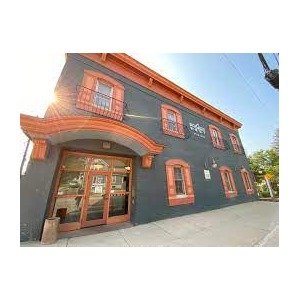Best Tax Increment Financing Lawyers in Ann Arbor
Share your needs with us, get contacted by law firms.
Free. Takes 2 min.
List of the best lawyers in Ann Arbor, United States
About Tax Increment Financing Law in Ann Arbor, United States
Tax Increment Financing (TIF) is an essential economic development tool used in Ann Arbor, United States, aimed at spurring growth in designated areas by financing public infrastructure improvements. Through TIF, the city can capture the future tax benefits of increased property values resulting from redevelopment projects. The increment in tax revenue generated by the rise in property values goes towards paying the cost of the development, thus supporting urban regeneration without directly increasing taxes.
Why You May Need a Lawyer
Engaging with Tax Increment Financing can present various complexities requiring legal expertise. You may need a lawyer if you are a developer seeking to understand eligibility for TIF benefits, a property owner within a proposed TIF district needing clarification on tax implications, or a municipal official needing legal insight on TIF project structuring. Furthermore, legal counsel can assist in navigating negotiations, drafting agreements, and ensuring compliance with local and state regulations.
Local Laws Overview
In Ann Arbor, TIF is governed by both state and local statutes that outline the conditions under which TIFs can be established and operated. The city council plays a crucial role in the approval of TIF districts and projects, ensuring they align with the broader urban development goals. Key legal aspects include the eligibility criteria for TIF areas, public participation requirements, and financial accountability measures to ensure transparency and trust in the way funds are managed.
Frequently Asked Questions
What is a TIF district?
A TIF district is a designated geographical area where Tax Increment Financing is utilized to encourage development and infrastructure improvements.
How is the "increment" in TIF defined?
The increment refers to the additional tax revenue generated from the increase in property values over a base value established at the time the TIF district is created.
Who benefits from TIF?
Developers benefit from improved infrastructure, communities benefit from enhanced public projects, and local governments can effectuate development without raising taxes.
Does TIF increase my property tax?
No, TIF does not directly increase property tax rates. Instead, it reallocates the growth in tax revenues within the TIF district towards development projects.
How long do TIF districts last?
TIF districts in Ann Arbor typically last for 20-30 years, depending on the terms specified when the district is established.
Can residents influence TIF projects?
Yes, public participation is a critical component. Residents can attend public hearings and provide feedback during the planning process.
What types of projects can TIF funds be used for?
TIF funds can be used for projects that promote public welfare, such as infrastructure improvements, job creation, and affordable housing development.
How is a TIF district approved?
A proposed TIF district must undergo evaluation and receive approval from the city council following stipulated legal criteria and public input.
Can TIF funds be used for private development?
Generally, TIF funds cannot be used for private developments directly but can fund public improvements that support private developments.
What happens when a TIF district expires?
When a TIF district expires, the increased property taxes are distributed among the usual taxing authorities, benefiting local schools, governments, and public services.
Additional Resources
For further assistance, consider reaching out to these resources:
- City of Ann Arbor Economic Development Office
- Michigan Economic Development Corporation
- Washtenaw County Development Projects Division
- Local professional real estate and development organizations
Next Steps
If you require legal assistance with Tax Increment Financing in Ann Arbor, consider the following steps:
- Consult with a local attorney specializing in municipal or real estate law for personalized legal guidance.
- Gather all relevant documents and information regarding your interest in TIF for a comprehensive legal assessment.
- Attend local city council meetings to stay informed on current and future TIF projects.
- Engage with local development agencies to understand potential benefits and drawbacks of participating in TIF initiatives.
Lawzana helps you find the best lawyers and law firms in Ann Arbor through a curated and pre-screened list of qualified legal professionals. Our platform offers rankings and detailed profiles of attorneys and law firms, allowing you to compare based on practice areas, including Tax Increment Financing, experience, and client feedback.
Each profile includes a description of the firm's areas of practice, client reviews, team members and partners, year of establishment, spoken languages, office locations, contact information, social media presence, and any published articles or resources. Most firms on our platform speak English and are experienced in both local and international legal matters.
Get a quote from top-rated law firms in Ann Arbor, United States — quickly, securely, and without unnecessary hassle.
Disclaimer:
The information provided on this page is for general informational purposes only and does not constitute legal advice. While we strive to ensure the accuracy and relevance of the content, legal information may change over time, and interpretations of the law can vary. You should always consult with a qualified legal professional for advice specific to your situation.
We disclaim all liability for actions taken or not taken based on the content of this page. If you believe any information is incorrect or outdated, please contact us, and we will review and update it where appropriate.








